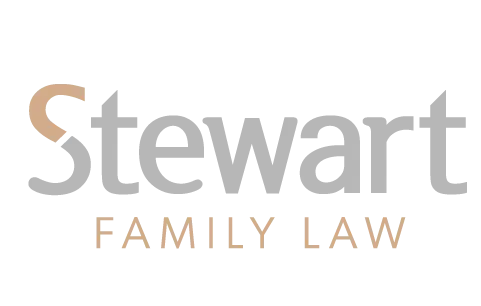If you are leaving a relationship with a narcissistic partner, you may have wondered if there are family lawyers who specialise in narcissistic abuse. Formal family law specialisations are generally related to the field of practice, such as family law, property law, or estate law.
Narcissistic abuse is a niche area of family and relationship law, and even the term itself is not medically recognised. However, Narcissistic Personality Disorder does exist, and there is extensive literature on the impacts this can have on close partners and family members. More often than not, someone displaying narcissistic personality traits will not have a diagnosis, which makes it difficult to legally recognise and address under that term.
Having said this, there are many experienced lawyers who regularly handle complex matters involving manipulative behaviour, coercive control, and emotional, psychological and financial abuse, and many understand the patterns of behaviour related to the umbrella of narcissistic abuse.
Family lawyers with experience dealing with high-conflict separations, parenting disputes and domestic violence often have the skills and insight needed to support narcissistic abuse victims through the legal system.
Understanding Narcissism & Narcissistic Personality Disorder (NPD)
Narcissism, in everyday terms, refers to behaviours such as manipulation, lack of empathy and controlling conduct (the latter of which may have crossovers with coercive control). Narcissistic Personality Disorder (NPD) is a recognised mental health condition in the DSM-5. However, many people who display narcissistic behaviours do not have a formal diagnosis. Narcissistic abuse, while not a clinical term, is often used to describe harmful patterns of manipulation, gaslighting, emotional blackmail and control in relationships.
What Is Narcissistic Abuse?
Narcissistic abuse typically involves a pattern of behaviours aimed at undermining a person’s confidence, financial independence and emotional stability.
Narcissistic abuse refers to a pattern of manipulative, controlling or harmful behaviours exhibited by a person with narcissistic traits.
Victims may experience:
- Emotional manipulation and gaslighting
- Financial control or economic abuse
- Verbal abuse, intimidation or threats
- Attempts to control parenting arrangements
- False allegations or smear campaigns
These behaviours often aim to gain control over a partner, damage self-esteem, and create an unsafe environment. While not a formal diagnosis, narcissistic abuse is a lived experience for many victims, leading to lasting emotional harm and mental health issues.
These behaviours often make separation, parenting matters and property settlements far more complex, and create difficulty in family court matters. If you’d like to gain further insight into narcissistic traits and relationship law, you can read our recent article ‘Narcissistic Abuse and Separation‘.

Signs of Narcissistic Abuse to Watch For
Recognising narcissistic abuse involves looking at patterns of behaviour rather than isolated incidents. Signs may include:
- Emotional manipulation, gaslighting, or mental abuse
- Constant criticism or undermining of self-esteem
- Controlling access to finances (economic abuse)
- Isolating a person from their support network or family home
- Verbal abuse or threats, especially in front of children
- Creating an unsafe environment through intimidation
- Physical or sexual abuse (in extreme cases)
- Using the family court to prolong conflict or gain control
- Making false allegations to manipulate parenting arrangements
- Undermining personal safety and well-being of the other parent
Victims of narcissistic abuse may feel trapped, fearful of seeking advice or unsure of their legal options. If you recognise narcissistic abuse in your own lives or that of someone you know, seek legal support immediately.
What Is Narcissistic Abuse Syndrome?
Narcissistic abuse syndrome is a non-clinical term used to describe the long-term effects of living with or separating from a narcissistic partner. It is not formally recognised by the DSM-5 but is a term used by support networks and professionals supporting victims. Common impacts include:
- Chronic self-doubt and anxiety
- Diminished self-esteem
- Depression or other mental health issues
- Difficulty trusting others or forming healthy relationships
- Lingering fear of the former partner
- Constant concern over personal safety
If you are in immediate danger or facing manipulative behaviour from a narcissistic spouse, contact a qualified family lawyer who has experience dealing with domestic violence, coercive control and emotional abuse.
The Difficulty Of Dealing With Narcissistic Ex-Partners During Legal Matters
In family law matters, narcissistic behaviour can create significant complications, especially during property settlement, parenting arrangements or court proceedings. A common trait of narcissism is low empathy, which can translate to very low (if any) concern for the damage being done to their ex-partner, or even children involved.
The narcissistic partner may attempt to:
- Control or delay financial settlement
- Make false allegations in parenting disputes
- Use economic abuse or financial control to manipulate the other party
- Undermine the personal safety of the former partner or children
The family court is aware of these dynamics and can make orders to protect the rights and safety of all parties involved. However, recognising narcissistic abuse in legal terms usually involves framing it within accepted categories like emotional abuse, coercive control or financial abuse.
How Narcissistic Abuse Impacts Family Law Matters
When narcissistic behaviours carry over into family law disputes, the impacts can be severe. Common challenges include:
- Parenting Arrangements: A narcissistic parent may seek control or use the children to manipulate the other parent.
- Property Settlement: Delays, refusal to provide financial disclosure, or attempts to hide assets,
- Emotional & Financial Abuse: Using the legal process itself as a form of control, including vexatious litigation or threats.
These issues can cause significant emotional harm and financial strain, particularly when court proceedings are drawn out.

Understanding The Family Law Act & What Matters Can Be Addressed
Family law in Australia focuses on parenting arrangements, property settlement, spousal maintenance and protection from abuse. While narcissistic abuse is not a recognised legal term, behaviours such as emotional abuse, financial abuse, psychological abuse and controlling behaviour can be addressed under family law and domestic violence legislation.
An experienced lawyer will focus on:
- Applying for parenting orders and protecting financial resources
- Assisting with financial disclosure and injunctions where needed
- Providing advice for your safety and wellbeing
- Supporting you in gaining control of your legal situation
- Offering expertise in dealing with difficult former partners
- Guiding you through legal options and high-conflict matters
- Assisting with any further matters such as parenting disputes, breaches of orders or child support matters
Whether you are leaving a de facto relationship or marriage, the courts can make orders to protect personal safety, manage or protect financial resources, and support the best interests of the children involved. Having a knowledgeable and compassionate lawyer on your side can make a world of difference in these types of matters.
Be Mindful Of Terminology
While it may help personally to label certain behaviours, terms like “narcissistic abuse” aren’t legally defined. A good lawyer will help you frame your experience in a way that courts can understand, focusing on controlling behaviour, abuse, control and emotional harm.
Do Some Family Lawyers Have Experience In Narcissistic Abuse Matters?
Yes. While there are no formal specialisations in “narcissistic abuse,” many family lawyers have built strong reputations for helping clients through the unique challenges these situations present. Some have backgrounds in social work, mental health, psychology or domestic violence advocacy, giving them insight into manipulative behaviour patterns and emotional abuse.
When choosing a lawyer, consider asking:
- Have you worked with clients experiencing emotional or financial abuse?
- Are you familiar with controlling behaviour in parenting and property matters?
- What strategies do you use in complex family law cases with high-conflict ex-partners?
Most importantly, it’s essential that you feel comfortable with your legal team – both in terms of their skills and the level of support they are able to offer you during the process.
Why Judy & The Team At Stewart Family Law?
With extensive experience in family law, complex parenting matters and domestic violence, Judy and her team offer supportive, strategic legal advice tailored to your specific circumstances. Judy also worked as a social worker prior to becoming a family lawyer, giving her additional insights into family dynamics. You’ll be working with a team who understands the impact of narcissistic behaviours on families and is committed to helping you regain control and reach the best outcome for your future.
Setting Firm Boundaries & Seeking Support
If you are dealing with a narcissistic partner or suspect manipulative behaviour, seeking legal advice early is critical. You’ll also benefit from:
- Building a strong support network
- Documenting interactions and keeping records of financial matters
- Seeking professional advice about your legal rights and financial settlement options
- Accessing emotional support services if needed
Dealing With Narcissistic Abuse? Need a Family Lawyer?
If you are facing a separation or property settlement complicated by emotional abuse, manipulative behaviour or a ‘high-conflict’ ex-partner, we’re here to help. Our experienced team understands how to effectively address complex family law matters with firm, practical advice, legal expertise and compassionate support.
Contact us today for an initial consultation and get the support you need to protect your rights and move forward with your life.





